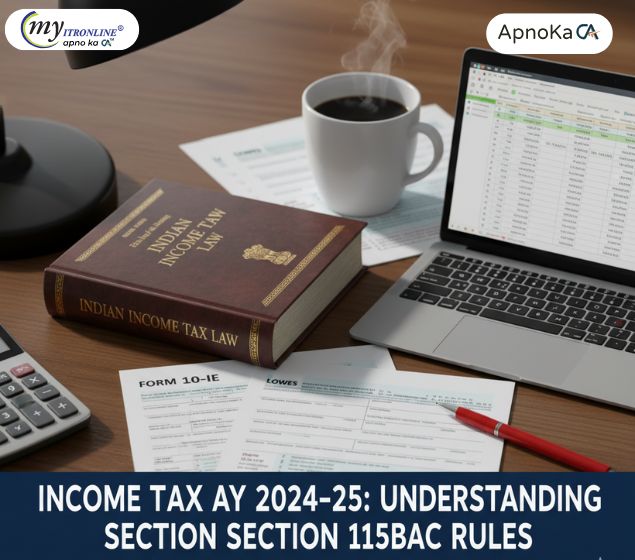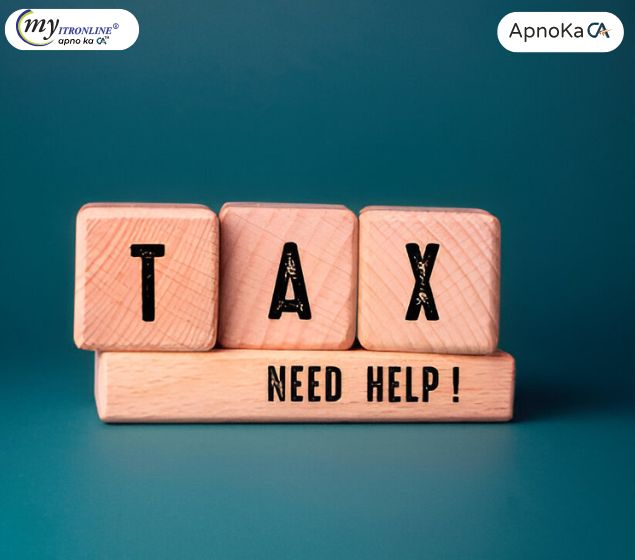# taxexemptions
12 posts in `taxexemptions` tag

Income Tax AY 2024–25: Understanding Section 115BAC Rules
Section 115BAC introduces a simplified tax structure with reduced slab rates, but at the cost of foregoing key exemptions and deductions. Effective from AY 2024–25 as the default regime, this blog explains the revised tax slabs, outlines the benefits that are no longer available, and guides taxpayers on choosing between the new and old regimes based on their financial profile and investment habits.
.jpg)
India's New Income Tax Regime (Section 115BAC): Your Comprehensive Guide for FY 2024-25 & 2025-26
This comprehensive guide breaks down India's New Income Tax Regime under Section 115BAC, now the default for individuals and HUFs. It details the revised income tax slab rates for Financial Years 2024-25 and 2025-26, highlighting the increased basic exemption limits and the enhanced rebate under Section 87A. The article clearly outlines the limited deductions and exemptions still allowed (e.g., standard deduction, employer's NPS contribution) versus the numerous ones no longer applicable. It concludes by helping taxpayers determine whether the new regime or the old regime is more beneficial for their specific financial situation and explains the process for switching between the two.

HRA in the New Tax Regime: What You Must Know to Avoid Notices
This blog demystifies the treatment of House Rent Allowance (HRA) under India's New Tax Regime. It clarifies whether HRA is exempt, outlines its impact on your tax filing process, and provides crucial advice on how to navigate the changes to avoid receiving tax notices. Learn the key differences from the old regime and ensure your tax compliance is seamless for the current financial year and beyond.

How to Save Tax on Capital Gains: Key Exemptions and Step-by-Step Claim Guide
This blog explains the key exemptions available under India’s capital gains tax laws for FY 2025-26, including the latest updates from Budget 2025. It covers who can claim each exemption, how to utilize the Capital Gain Account Scheme, and the correct process for claiming exemptions in your income tax return.
.jpg)
Old vs New Tax Regime: A Detailed Comparison to Save More
The Indian government provides two tax regimes – the Old Regime and the New Regime – each with its own benefits and drawbacks. The Old Regime offers multiple deductions and exemptions, while the New Regime provides lower tax rates with minimal exemptions. This blog explores the key differences, tax calculations, and real-life illustrations to help taxpayers make an informed choice. Find out which tax regime suits your financial situation best!
.jpg)
New Regulation: Sponsorship Service Taxability Will Be Modified
To improve transparency and expedite compliance, the government is thinking about changing the taxability of sponsoring services. Redefining sponsoring services, updating exemption standards, and moving GST obligation to service providers are some of the main suggested changes. Sponsors, receivers, and tax authorities may be impacted by these developments, which might also provide difficulties including higher compliance expenses and cash flow problems. Companies need to be aware, evaluate the effects, and proactively adjust to the new rules.
.jpg)
Section 10(23FE Simplified: CBDT’s Notification 127/2024 Explained
By issuing Notification No. 127/2024, the Central Board of Direct Taxes (CBDT) has amended Section 10(23FE) of the Income-tax Act. The updated rules simplify compliance and increase the range of assets available to pension funds (PFs) and sovereign wealth funds (SWFs). In line with India's economic objectives, these adjustments are meant to draw in long-term investments in the social development and infrastructure sectors.

Leveraging Sections 54 and 54F for Tax Exemptions in Property Transactions
This blog explores Sections 54 and 54F of the Indian Income Tax Act and explains how they exempt individuals and HUFs from paying taxes on capital gains when they reinvest them in residential real estate. To ensure clarity for taxpayers, the essay also discusses frequent disagreements, court rulings, and helpful advice for claiming exemptions.

Form 8: The Key to Maximizing Your Tax Deductions
An extensive guide on Form 8, which is essential for claiming tax exemptions and deductions in India, may be found in this blog post. It walks readers through the significance of Form 8, shows them how to complete it, and offers examples to help them maximize their tax savings.
.jpg)
Understanding Section 50B of the Income Tax Act: Slump Sale and Its Tax Implications
This blog provides an in-depth exploration of Section 50B of the Income Tax Act, focusing on the concept of slump sales. It explains the unique characteristics of slump sales, how capital gains are calculated, and the tax implications for both short-term and long-term gains. The blog also covers compliance requirements, exemptions, common misconceptions, and challenges, supported by real-life case studies. Essential for businesses and tax professionals, this guide aims to demystify Section 50B and provide clear insights into the taxation of slump sales.

CBDT Mandates Electronic Filing of Appendix-II Forms
The blog post discusses the CBDT's mandate for electronic filing of Appendix-II forms under the Income Tax Rules, 1962, effective from April 1, 2024. It covers the electronic filing process, forms covered, benefits of electronic filing, and compliance requirements for taxpayers. The post aims to inform and guide taxpayers about the new mandate, helping them prepare for the upcoming changes and ensure timely and accurate filing of Appendix-II forms.

Serving the Nation, Saving on Taxes: A Guide to ITR for Army Personnel
This blog post guides army personnel through the special tax exemptions and deductions available to them and helps them choose the right ITR form for filing their income tax return.
